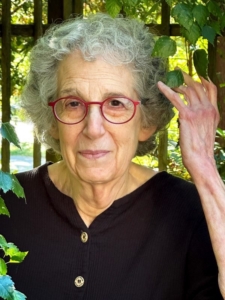Election Day
I know I have been strangely silent about the U. S. election — in this venue at least. My family of origin used to be decent, working-class Republicans. Something I didn’t even know until I discovered how much my father admired Ronald Reagan. Now they are die-hard MAGA Republicans. It hurts my heart. If I say anything, they think I’m crazy. So I silence myself. In truth, I silenced my little bleeding liberal heart a lot as a child. I’m good at it. Not that they don’t love me, or that I don’t love them.
 I remember my brother-in-law once telling me, “If you would only listen to Rush Limbaugh, then you would understand.” Well, if you would read The New Yorker, or The Nation, or freaking Time Magazine, YOU would get it. No, I don’t say that (not out loud). Instead I hang out with my tribe (poets), and watch Kamala’s Tik-Tok channel (or whatever it is) with my daughters.
I remember my brother-in-law once telling me, “If you would only listen to Rush Limbaugh, then you would understand.” Well, if you would read The New Yorker, or The Nation, or freaking Time Magazine, YOU would get it. No, I don’t say that (not out loud). Instead I hang out with my tribe (poets), and watch Kamala’s Tik-Tok channel (or whatever it is) with my daughters.
And I feel really, really anxious. To make matters worse, two weeks ago my old dog died. I really wish he were here.

Pabu in his Halloween costume, a couple years back
How do I deal with election-anxiety? I get up early and sit at my desk, scribbling in a notebook (although he always lay at my feet and I miss having him there), and that makes me feel better. I read poetry, and that makes me feel better. (Though I used to read poems aloud to him.) I go for long, long walks with Pabu’s collar in my pocket, and that makes me feel a little better
I didn’t mean to say all of that. But, for once, I won’t erase what I’m thinking. I’ll just leave it out there.
In the Substack world, several people have today posted this poem by Alison Luterman. I found myself wanting to read it to my friends, and then — aha! — I thought of you. I copied this from Robert Reich, by the way.
I used to tell my students, if we all thought alike, we’d be robots or under some kind of mind control — in movies and novels, that’s always a dystopia. So, read widely, expose yourself to diverse cultures and ideas and voices. Make up your own mind. Be human.
And don’t forget to read poems.
HOLDING VIGIL
My cousin asks if I can describe this moment,
the heaviness of it, like sitting outside
the operating room while someone you love
is in surgery and you’re on those awful plastic chairs
eating flaming Doritos from the vending machine
which is the only thing that seems appealing to you, dinner-wise,
waiting for the moment when the doctor will come out
in her scrubs and face-mask, which she’ll pull down
to tell you whether your beloved will live or not. That’s how it feels
as the hours tick by, and everyone I care about
is texting me with the same cold lump of dread in their throat
asking if I’m okay, telling me how scared they are.
I suppose in that way this is a moment of unity,
the fact that we are all waiting in the same
hospital corridor, for the same patient, who is on life support,
and we’re asking each other, Will he wake up?
Will she be herself? And we’re taking turns holding vigil,
as families do, and bringing each other coffee
from the cafeteria, and some of us think she’s gonna make it
while others are already planning what they’ll wear to the funeral,
which is also what happens at times like these,
and I tell my cousin I don’t think I can describe this moment,
heavier than plutonium, but on the other hand,
in the grand scheme of things, I mean the whole sweep
of human history, a soap bubble, because empires
are always rising and falling, and whole civilizations
die, they do, they get wiped out, this happens
all the time, it’s just a shock when it happens to your civilization,
your country, when it’s someone from your family on the respirator,
and I don’t ask her how she’s sleeping, or what she thinks about
when she wakes at three in the morning,
cause she’s got two daughters, and that’s the thing,
it’s not just us older people, forget about us, we had our day
and we burned right through it, gasoline, fast food,
cheap clothing, but right now I’m talking about the babies,
and not just the human ones, but also the turtles and owls
and white tigers, the Redwoods, the ozone layer,
the icebergs for the love of God—every single
blessed being on the face of this earth
is holding its breath in this moment,
and if you’re asking, can I describe that, Cousin,
then I’ve gotta say no, no one could describe it
we all just have to live through it,
holding each other’s hands.


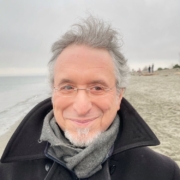
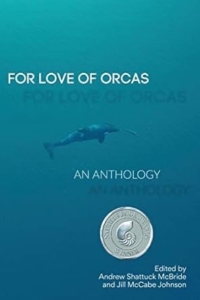 For Love of Orcas, a gorgeous tribute book published in 2019. Jed Myers’s Learning to Hold won the Wandering Aengus Press Editors’ Award, and is another beautifully written, and beautifully wrought book.
For Love of Orcas, a gorgeous tribute book published in 2019. Jed Myers’s Learning to Hold won the Wandering Aengus Press Editors’ Award, and is another beautifully written, and beautifully wrought book.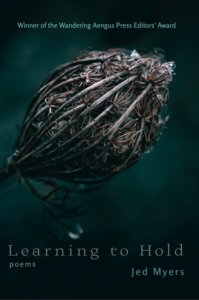 Jed Myers is the editor of
Jed Myers is the editor of 
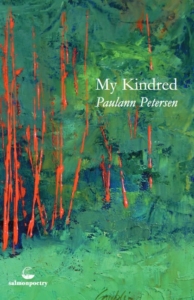 Petersen has an impressive biography, including being the Oregon poet laureate. I am indebted to Olympia Poetry Network’s
Petersen has an impressive biography, including being the Oregon poet laureate. I am indebted to Olympia Poetry Network’s 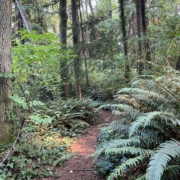
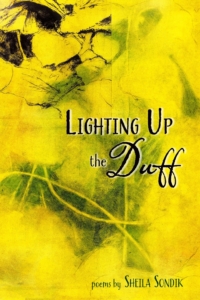 $14.00,
$14.00, 